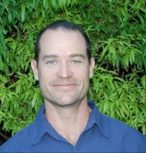DNA reveals the past and future of coral reefs
New DNA techniques are being used to understand how coral reacted to the end of the last ice age in order to better predict how they will cope with current changes to the climate. James Cook Univer

From 2005 to 2022, the main node of the ARC Centre of Excellence for Coral Reef Studies was headquartered at James Cook University in Townsville, Queensland (Australia)








Abstract: Understanding how key habitat-forming organisms such as corals respond to changing environmental conditions is increasingly important for predicting future trajectories on coral reefs. In particular, a better understanding of the effects of environmental change on processes such as coral recruitment (Hughes et al. 2019), coral growth (Pratchett et al. 2015) and reef accretion (Perry et al. 2018) are a priority. The overall objective of this thesis is investigate how world heritage listed coral reefs in North-Western of Australia are responding to rapidly changing environmental conditions. I first look at recruitment patterns at Ningaloo Reef and in the Pilbara region, which are crucial for understanding resilience and the potential for recovery following disturbance (Hughes et al. 2000). I then examine the distribution of corals at Ningaloo Reef over ten years to explore how trends in coral cover, coral genera and coral functional groups differ among reef zones. Finally, I examine rates of growth and erosion on reefs at Ningaloo Reef: processes that are critical for assessing reef accretion and ecosystem services such as shoreline protection and the provision of habitat for fish species targeted by fishers.
Biography: Damian has spent over 25 years working on tropical coral reefs and studying the factors that impact them. He has worked on reefs that span over 30 degrees of latitude and his primary interest is understanding how benthic habitats are responding to changing environmental conditions. While his love of coral reefs developed during his early childhood holidays to Ningaloo and WA’s North West, the real work began when he graduated with honours from James Cook University in 1995, examining the effects of elevated nutrient levels on the early development of Favids. It was here that Damian sharpened his coral husbandry skills, alongside his tolerance for working while sleep-deprived, working on the ARC funded coral hybridisation program under Professor Bette Willis. Damian then spent several years working for JCU Marine Biology Department and the Australian Institute of Marine Science climate adaptation and reef water quality programs. He then moved back home to WA in 2007 to work at CSIRO as an Experimental scientist and to raise two increasingly precocious teenagers. His Ph.D. is focused on the dynamics of reef-building corals of north-Western Australia, under the supervision of Andrew Hoey, Morgan Pratchett and Shaun Wilson.
New DNA techniques are being used to understand how coral reacted to the end of the last ice age in order to better predict how they will cope with current changes to the climate. James Cook Univer
A new study on the effects of climate change in five tropical countries has found fisheries are in more trouble than agriculture, and poor people are in the most danger. Distinguished Profess
James Cook University researchers have found brightly coloured fish are becoming increasingly rare as coral declines, with the phenomenon likely to get worse in the future. Christopher Hemingson, a
Researchers working with stakeholders in the Great Barrier Reef region have come up with ideas on how groups responsible for looking after the reef can operate more effectively when the next bleaching
Abstract: As marine species adapt to climate change, their heat tolerance will likely be under strong selection. Individual variation in heat tolerance and its heritability underpin the potential fo
Abstract: The Reef Ecology Lab in KAUST’s Red Sea Research Center explores many aspects of movement ecology of marine organisms, ranging from adult migrations to intergenerational larval dispersal
Abstract: Macroalgal meadows are a prominent, yet often maligned component of the tropical seascape. Our work at Ningaloo reef in WA demonstrate that canopy forming macroalgae provide habitat for ad
Abstract: Sharks are generally perceived as strong and fearsome animals. With fossils dating back at least 420 million years, sharks are not only majestic top predators but they also outlived dinosa
Abstract: Connectivity plays a vital role in many ecosystems through its effects on fundamental ecological and evolutionary processes. Its consequences for populations and metapopulations have been
Abstract: Evolution of many eukaryotic organisms is affected by interactions with microbes. Microbial symbioses can ultimately reflect host’s diet, habitat range, and even body shape. However, how
Abstract: The past few years have seen unprecedented coral bleaching and mortality on the Great Barrier Reef (GBR) but the consequences of this on biodiversity are not yet known. This talk will expl